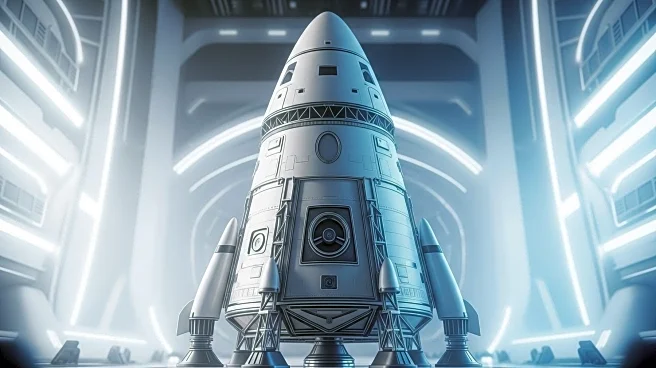What is the story about?
What's Happening?
The European Space Agency (ESA) has awarded a €40 million contract to Italian rocket manufacturer Avio to design a reusable rocket stage demonstrator. This contract marks the second phase of a project initiated by ESA in March 2024, which aims to develop a reusable upper stage for rockets. The first phase involved identifying the necessary technology maturation needs, and the second phase, now awarded to Avio, will focus on completing the system requirements and technological solutions over the next 24 months. Avio's work will culminate in a preliminary design for both the flight and ground segments of the demonstrator mission. The project is part of ESA's broader efforts to advance liquid propulsion, reentry, recoverability, and reusability technologies, potentially influencing the evolution of the Vega family of rockets and other new launch systems in Europe.
Why It's Important?
This development is significant for the European space industry as it represents a step towards enhancing the continent's capabilities in reusable rocket technology, a field currently dominated by companies like SpaceX. By investing in reusable technology, ESA aims to reduce launch costs and increase the competitiveness of European rockets in the global market. Avio's involvement in this project could bolster its position as a key player in the space sector, potentially leading to more contracts and collaborations. The success of this project could also pave the way for more sustainable and cost-effective space missions, benefiting various stakeholders, including satellite operators and scientific research organizations.
What's Next?
Over the next two years, Avio will work on the design and development of the reusable rocket stage, with a focus on achieving a preliminary design milestone. The project will likely involve collaboration with other European companies and institutions to leverage existing expertise and technologies. As the project progresses, ESA and Avio may release further details about the design and testing phases. The outcome of this project could influence future ESA missions and the development of new launch vehicles, potentially leading to a shift in the European space launch market.
















